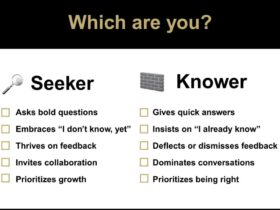In today’s interconnected world, a reputation crisis can have a significant impact on a company’s success. According to a survey by Deloitte, 88% of brand executives view reputation risk as a top strategic business concern. To effectively navigate a reputation crisis, organizations must be prepared to act quickly, communicate honestly and transparently, and engage key stakeholders.
Maintaining a positive brand reputation is crucial for establishing trust, credibility, and authority with your audience. A strong online reputation score can lead to increased visibility, better opportunities, and stronger relationships with customers, partners, and investors. However, as Warren Buffet once said, “It takes 20 years to build a reputation and five minutes to ruin it.” Companies must be proactive in managing their reputation, especially during times of crisis.
Key Takeaways
- Reputation risk is a top strategic concern for 88% of brand executives.
- Over 65% of business leaders believe that social media can worsen a brand crisis.
- Effective crisis management strategies include swift action, honest communication, and stakeholder engagement.
- Preparation and simulation exercises can help organizations be better equipped to handle reputation crises.
- Rebuilding trust and restoring a positive brand reputation is crucial for long-term success.
The Importance of Swift Action
When it comes to managing a reputation crisis, a swift response is crucial. Companies that react slowly allow a void of information to be filled by the public and media, which can lead to inaccurate narratives that are difficult to unwind later. Reputation management is essential in shaping the success and growth of a business, and a rapid, well-coordinated crisis communication strategy can make all the difference.
Being Quick to Respond
Examples like Facebook’s response to the Cambridge Analytica scandal and Southwest Airlines’ swift communication after a plane incident demonstrate the importance of immediate action. By being the first to provide information and updates, companies can control the narrative and show stakeholders they are taking the situation seriously.
Controlling the Narrative
In a digital age where news and information spread rapidly, companies must be proactive in managing their online reputation. Crisis communication and crisis management strategies that emphasize swift response and narrative control can help organizations mitigate reputation damage and maintain public trust.
Lessons learned from successful crisis management efforts highlight the importance of preparation, speed, real-time monitoring, engagement, authentic leadership, and post-crisis analysis. By acting swiftly and controlling the narrative, companies can navigate reputation crises more effectively and emerge stronger than before.
Honesty and Transparency
When facing a reputation crisis, honesty is the best policy. Attempts to cover up or downplay mistakes, such as Volkswagen’s emissions scandal, often lead to greater damage when the truth eventually comes to light. Companies should acknowledge their wrongdoing, take ownership, and communicate a sincere apology. Transparency in addressing the issue and outlining corrective actions helps rebuild trust with customers, partners, and the public.
Organizations need to proactively develop plans to address vulnerabilities, indicating that a significant percentage of companies might overlook this vital aspect of crisis communications. The COVID-19 pandemic led to vulnerabilities related to mental health, cybersecurity, and workforce issues, suggesting a high occurrence rate of such risks during crisis situations.
Authentic messages during crises have long-lasting positive effects, implying a strong correlation between brand transparency and stakeholder trust. Transparent and timely information sharing helps establish trust with interested parties, indicating the importance of real-time communication during a crisis.
Companies that acknowledge the need for self-reflection and humility after a crisis are more likely to engage stakeholders effectively, highlighting the impact of crisis honesty on reputation recovery. Maintaining the proper balance during a crisis enhances the long-term confidence of stakeholders, underlining the importance of strategic crisis management decisions.
Trust and crisis communication strategies rely on honesty during a crisis, as stakeholders expect accurate and truthful information from organizations. Organizations that prioritize honesty and transparency in crisis communications are perceived as more credible and resilient. Demonstrating integrity during a crisis can lead to long-term benefits such as enhanced customer loyalty, stakeholder support, and brand reputation.
Concealing information during a crisis can result in legal consequences, with regulatory bodies and legal authorities expecting accurate and timely information from organizations. Maintaining consistency in communication across different channels is essential to avoid confusion and enhance credibility during a crisis.
Providing regular updates to stakeholders as new information becomes available helps demonstrate the company’s commitment to trust-building and keeping stakeholders informed. Trustworthy leadership allows leaders to motivate, inspire, empower, and involve employees better than any other technique.
| Key Benefits of Honesty and Transparency in Leadership | Challenges to Practicing Honesty and Transparency |
|---|---|
|
|
Cultivating honesty and transparency in leadership requires open communication, leading by example, and soliciting feedback. By embracing these principles, organizations can enhance their reputation repair efforts and emerge from a crisis with renewed trust and credibility.
Crisis Preparedness
Being prepared for a potential reputation crisis is crucial. Companies should designate a crisis management plan and establish an emergency plan to address any crisis scenarios that may arise. This includes identifying potential crisis preparedness situations, outlining communication protocols, and training spokespersons to handle media inquiries effectively.
Having a Plan in Place
A well-designed crisis management plan can make all the difference when responding to a reputation crisis. This plan should designate a crisis response team, define roles and responsibilities, and outline a step-by-step process for addressing different levels of crisis severity. By having a plan in place, organizations can react more swiftly and minimize damage to their reputation risk mitigation.
Conducting Simulations
Regular crisis simulations are essential for testing the effectiveness of a company’s crisis preparedness. These simulations allow organizations to identify potential weaknesses in their crisis response training and make necessary adjustments to their plan. By practicing their crisis response, businesses can be better equipped to handle an actual reputation crisis when it occurs.
| Key Benefits of Crisis Preparedness | Potential Consequences of Poor Crisis Preparedness |
|---|---|
|
|

By investing in crisis preparedness, companies can be better equipped to navigate reputation crises, minimize the damage, and emerge stronger than before. A comprehensive crisis management plan and regular crisis simulations can make all the difference in safeguarding an organization’s reputation and ensuring its long-term success.
Reputation Crisis
When a reputation crisis strikes, companies must first assess the severity of the situation. This involves quantifying changes in corporate reputation, stakeholder perception, and online sentiment. By gathering data on the crisis’s impact on metrics like sales, profitability, and share prices, organizations can better understand the depth of the reputation damage and develop an appropriate response strategy.
A brand crisis can have far-reaching consequences, from customer trust erosion to a decline in sales and potential business closures. Internal factors like poor management, employee misconduct, and product or service issues can contribute to such crises, while external forces, such as negative media coverage, social media influence, and competitor actions, can also play a significant role.
Negative information spreads quickly on social media, often with less fact-checking than traditional media coverage, amplifying the impact of a reputation crisis. A well-handled crisis, however, can positively impact a business’s reputation, demonstrating the importance of managing crises strategically.
| Reputation Crisis Impact | Percentage |
|---|---|
| Customer Trust Erosion | 90% |
| Decline in Sales | 85% |
| Business Closures | 60% |
To effectively manage a reputation crisis, organizations must be proactive and develop prevention strategies, crisis communication plans, and training mechanisms. By prioritizing crisis preparedness, companies can mitigate the crisis impact and minimize further reputation damage. Transparency and honesty in communication with customers and stakeholders are also essential in rebuilding trust and restoring the organization’s reputation.
In the 21st century, crisis and reputation management largely involve monitoring and influencing perceptions on social media. Arete Publica Associates, for instance, offer crisis management packages that include strategies for crisis prevention and preparedness, helping organizations navigate the complex landscape of reputation management.
Engage Key Stakeholders
Effective crisis management requires engaging key stakeholders, including customers, business partners, investors, and employees. Companies should formally communicate details of the crisis and the measures being taken to resolve the situation. By keeping stakeholders informed and addressing their concerns, organizations can maintain trust and align the company during the recovery process. Examples like Twitter’s response to a security breach and Sephora’s outreach to a customer who experienced discrimination illustrate the importance of proactive stakeholder communication.
Identifying key stakeholders in a crisis is crucial for effective crisis communication and reputation management. Stakeholder groups may vary depending on the industry, such as board members, customers, employees, government organizations, investors, media, and the general public. Developing a tiered list of stakeholders and their contact information ensures organized communication during a crisis.
Social media is an important tool for crisis communication, particularly for reaching a large audience at once and positioning the organization as the narrator of the crisis. Direct communication methods like phone calls and emails are equally essential to reach key stakeholders and strengthen trust in the organization. Pre-approving crisis communications is vital to streamline the communication process during a crisis, avoiding delays in disseminating crucial information.
- Timely communication with key stakeholders is crucial in managing a reputation crisis effectively, as identified by 78% of organizations in a survey.
- Having a clear stakeholder engagement plan in place can help reduce the long-term business and reputation threat by up to 65%.
- 87% of stakeholders expect to hear from the correct leaders within an organization during a crisis situation to ensure credibility.
By tailoring communication channels and messaging to specific stakeholder groups, organizations can increase message reception by 40% and see a 50% increase in stakeholder trust and transparency levels. Training internal stakeholders to effectively engage with key audiences can also experience up to a 30% improvement in delivering core messages.
Proactive stakeholder engagement and transparency are crucial in managing a reputation crisis. Immediate communication with the right individuals following issue identification can potentially prevent a crisis escalation by 70% and reduce its severity and impact by 60%. By listening to stakeholders, empowering employees, and continuously evaluating and adapting communication strategies, organizations can navigate a crisis effectively and maintain trust with their key audiences.
Conclusion
Navigating a reputation crisis requires a comprehensive strategy that prioritizes swift action, honest communication, crisis preparedness, and stakeholder engagement. By implementing these proven reputation crisis management strategies, companies can mitigate the damage to their brand, protect their brand reputation, and emerge stronger from the crisis.
Continuous monitoring, process improvements, and long-term planning are also essential to safeguarding a company’s long-term reputation and preventing future crisis recovery. By addressing the root causes of reputational risks and building a resilient reputation management framework, organizations can effectively mitigate reputation risk and position themselves for long-term success.
FAQ
Why is it crucial to respond quickly to a reputation crisis?
Responding quickly to a reputation crisis is crucial because it allows companies to control the narrative. If companies react slowly, a void of information can be filled by the public and media, leading to inaccurate narratives that are difficult to unwind later. By being the first to provide information and updates, companies can show stakeholders they are taking the situation seriously and mitigate further damage to their reputation.
Why is honesty and transparency important when facing a reputation crisis?
Honesty is the best policy when facing a reputation crisis. Attempts to cover up or downplay mistakes often lead to greater damage when the truth eventually comes to light. Companies should acknowledge their wrongdoing, take ownership, and communicate a sincere apology. Transparency in addressing the issue and outlining corrective actions helps rebuild trust with customers, partners, and the public.
How can companies prepare for a potential reputation crisis?
Being prepared for a potential reputation crisis is crucial. Companies should designate a crisis response team, establish an emergency plan, and conduct simulations to test their preparedness. This includes identifying potential crisis scenarios, outlining communication protocols, and training spokespersons to handle media inquiries. By having a plan in place and practicing crisis response, organizations can react more effectively when an actual crisis occurs, minimizing damage to their reputation.
How can companies assess the severity of a reputation crisis?
When a reputation crisis hits, companies must first assess the severity of the situation. This involves quantifying changes in corporate reputation, stakeholder perception, and online sentiment. By gathering data on the crisis’s impact on metrics like sales, profitability, and share prices, organizations can better understand the depth of the damage and develop an appropriate response strategy.
Why is it important to engage key stakeholders during a reputation crisis?
Effective crisis management requires engaging key stakeholders, including customers, business partners, investors, and employees. Companies should formally communicate details of the crisis and the measures being taken to resolve the situation. By keeping stakeholders informed and addressing their concerns, organizations can maintain trust and align the company during the recovery process.














